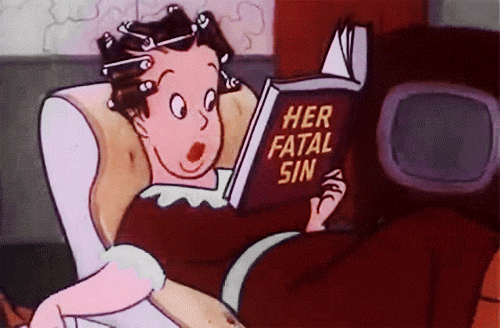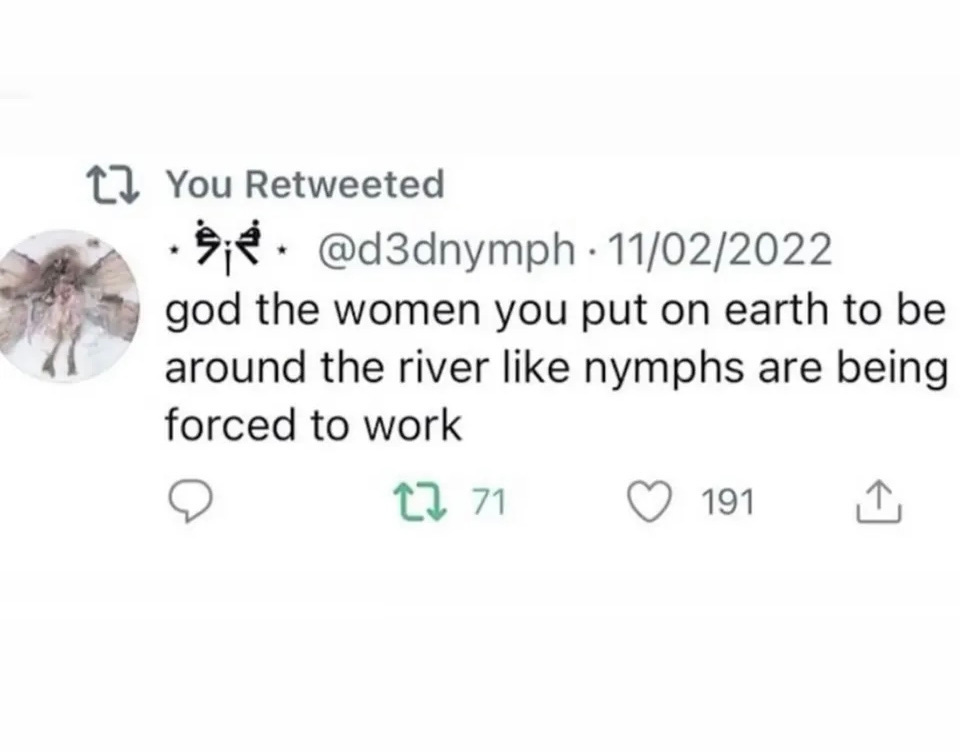[This newsletter will always be free to read, but it’s also how I supplement bills and such - which allows me the flexibility to bring you the best possible sex education every week. So, if you like what you read, please consider a paid subscription.]
Hey babe,
A common misconception amongst penis-owning folx is that in order to be a good partner (and worthy of anyone’s time), your erections should always work. And more than that, they should work on-command, in the right way, every single time – for the longest time in the entire world.
I hate to break it to you, but that’s just not how it works for the vast majority of people.
While having your penis work exactly the way you want it to is certainly a goal for many people, there are a lot of factors that can get in the way. Dr. Nazanin Moali, a sex therapist based in Los Angeles and the host of the Sexology podcast, told me that erection issues are a LOT more common than people think. In fact, when it comes to erectile dysfunction, for example, nearly 50 percent of penis-owning peeps will experience ED at some point in their lives.
I should also make it abundantly clear that just because you have issues with your erections does not, in fact, dictate whether or not you’re good in bed or a good partner. (Sex is about so much more than hard penises, after all). When it comes to erection problems, Moali adds that “Open and compassionate communication is key — [you or] your partner may be feeling embarrassed or frustrated, and [a partner’s] support can make a big difference.”
With the help of some of the most experienced experts in the biz, here are the 4 most common issues penis owners face. Erection issues can be incredibly frustrating, but with a little patience, kindness, and creativity – they can be rectified.
Firstly, language matters.
Instead of referring to ED or other penis problems as “dysfunctions” of various varieties, certified sex coach, Lucy Rowett, prefers to call them “erectile difficulties.” This takes out the “pathologization out of struggling to get an erection [and other penis-related issues], because being told that your dick is ‘dysfunctional’ can add to the emotional distress you're feeling about it already.”
Basically, it doesn’t help matters to think your body is “dysfunctional” just because your penis isn’t working the way you want it to. When we use more empathetic language, it makes broaching the topic and dealing with it a lot less overwhelming.
1. You have trouble getting it (or keeping it) up
Not being able to keep it up (aka: getting and/or maintaining an erection) is clinically known as erectile dysfunction. But, keeping in line with Rowett’s ethos, I prefer to call this “erectile difficulties.”
A whopping 50 percent of men will have some form of erectile dysfunction (ED) by age 40. “For some people, they can get an erection when masturbating, but not during partner sex, and for others they cannot get an erection at all – either solo or partnered,” Rowett says.
There are a lot of factors that can lead to erectile difficulties. Performance anxiety, stress, depression, or side effects from prescription meds all contribute to ED, says Dr. Aaron Spitz. Other life factors may include smoking and excess drinking, adds Harry Fisch, MD, author of Size Matters.
Moali says that ED is defined as being persistent and lasting over six months. If this is the case, it can be really helpful to go and see a doctor to rule out any lifestyle or medical issues.
If your ED is less centered on side effects from medications or other life factors, it might be based more in the emotional realm. “If it's more emotionally based (and remember it can absolutely be a combination of things), there are lots of things you can do to explore what the cause could be,” Rowett explains. “This is the time to consult a sex therapist, sex coach, or even a sexological bodyworker where you can learn specific exercises to get your erections back.”
2. You’re shooting air
It’s possible for a penis-owner to climax but not ejaculate at all during blast-off.. “Not many people know that orgasm and ejaculation are two separate functions, even if an ejaculation is usually triggered by an orgasm,” Rowett says. The more you know, you know?
Usually, not experiencing ejaculation is based in the medical side of things. When it comes to physiological reasons, the typical culprits are diabetes, pelvic-surgery complications, and blockages, says Dr. Spitz. Rowett also points to possible nerve damage in the penis or pelvic region.
If this is the case for you, consider visiting an MD to determine the cause and potential solution for this issue.
Another and lesser known reason? The #NoFap movement. This is when you practice semen retention – the completely unscientifically-based idea that you can increase your “masculine energy” and strength by not ejaculating. Well, this might actually cause more problems for you, folx. “Some [penis owners] can take it so far that they struggle to get ejaculations,” Rowett says. “While I believe that learning to get better control over your ejaculations and expanding your orgasmic potential is always a good thing for [penis-owners], be very careful around any dogmatic teachings.” #CertifiedJumpScare
3. You finish too fast
One in 4 men ejaculate in under two minutes of sex, says Dr. Spitz. (“Sex” in this instance is referring to PIV intercourse). So, this is a pretty common situation, pals. “What many people refer to as ‘finishing too fast’ is often a form of premature ejaculation—when someone reaches orgasm earlier than they’d like to,” Moali explains. “This can be frustrating and anxiety-provoking, making some [penis owners] feel disconnected from their bodies or like they’ve lost control.”
One solution? Gaining better control over the pelvic floor. Practicing kegels (contracting your pelvic-floor muscles as if you’re stopping the flow of urine) can help. It’s very important that you understand how to do kegels properly so that they are effective.
Another solution: Tune into yourself. While the age-old advice has often been “just think of anything else” in order to last longer in bed – the opposite is actually true. “The better approach is actually [to] stay present. Tune into your body and mind, slow things down, and focus on sensation—not distraction,” Moali says.
Something to also consider is the societal expectation that “longer” intercourse = better sex. This just isn’t the case for most people. “Many partners don’t necessarily need extended intercourse to enjoy themselves," Moali says. “Sometimes, the goal of ‘lasting longer’ gets overhyped, when what really matters is mutual pleasure, communication, and feeling emotionally connected.”
Pleasure is the measure, folx, not how long a peen can stay hard. Keep this in mind and you’re setting yourself up for much more satisfying sexual experiences.
4. You’re not getting off with your partner(s)
Able to get to climax alone, but not when you’re with someone else? There are a lot of factors that could be at play here. Rowett points to “stress, relationship issues, medication side effects, or past trauma,” she says. “It could very well be an emotional thing – maybe you're feeling performance anxiety, or maybe you're not feeling it, but [are] pressuring yourself into having sex anyway.” Basically, this is both common and complicated.
I’d be remiss if I didn’t mention the growing popularity of porn. About 33 percent of young men are so used to masturbating to porn— and its very unrealistic images of sex—that they can’t O with a partner, says Dr. Spitz. It’s a growing problem (only 5 percent were affected pre internet streaming).
There are a few solutions for this issue:
Cut down on porn for a bit to re-acclimate your body with fantasy and/or partnered experiences. You might even want to take a break from porn entirely just to see how your mind and body respond. This doesn’t mean cutting out porn completely, it just means stepping back with the goal of learning more about yourself and your body.
Change up the kinds of porn you’re watching. Try watching different kinds of scenes – specifically from ethically made production studios who focus on more realistic depictions of sex.
Use lube. Too many young people are getting themselves off with zero lubrication. This can lead to a phenomenon called “death grip,” wherein your penis becomes so used to this kind of stimulation that anything else (ie: A vagina or mouth) doesn’t provide enough stimulation to get you to climax. Don’t worry, this isn’t permanent. With a little patience and practice, you can get right back on track.
When it comes to all erection issues, kindness and open communication are going to be your saving grace. “It's important to reassure your partner that you love them and can be intimate with them in other ways, and to refrain from using critical language,” Rowett tells us. “Do your best to build [your partner up] and keep affirming to them that you still find them attractive and sexy.”
There are so many other, expansive and inventive ways to experience pleasure. Take the pressure off the penis, get creative, and be open to new adventures.
This week’s mantras:
I am whole, even if I have a sexual function issue.
I deserve to have pleasure, regardless of how my body works.
I will love myself.
I love you. Have a great week!
XOXO Auntie Gigi
Part of this newsletter originally appeared on Cosmo.
~Good ReadsSsSssSsSs~
Age does not have to dictate whether or not you have a great sex life. And older adults agree. This new survey found that older adults want hot sex, too! Get after it, my gorgeous elders. Read more. — AARP
I love a good roundup … and especially when people are telling real stories. Reddit stories being filmed and read aloud? Sign me up. I loved this roundup from Buzzfeed on real women explaining the final straw that ended their relationships. We love to see people moving on to live their best lives. Read more. — BUZZFEED
Have you heard of “dry begging?” This honestly was NEWS to me. Read more. — THE NEW YORK POST
Weekly LOL
We weren’t meant for such strife.
That’s it for me this week, pals. I love you.






